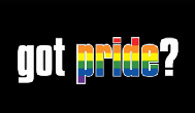I went to school in Nanyang Primary and Chinese High – both are Chinese schools in Singapore. Practically everyone around me at that time was Chinese - my family members, my friends in schools, and my teachers. So, before going to England to study, I had very little sense of pride about being Chinese. It was like being proud of having a nose. Everyone had a nose, what is there to be proud about?

I knew I could never be like them. I could try to speak like them, but my skin and nose and eyes and hair would give me away before I opened my mouth. I could dress like them, but my English cardigan could not conceal my Chinese culture. Instead I became very proud of my Chinese-ness. The pride didn’t come about because China had a longer history than England. I was after all from Singapore, a country with very little history. And China was a communist country then steeped in turmoil. In fact, there was no rational reason why I should be proud of being Chinese then. I could have been proud of many other things instead, such as being top of my class, or being the best pianist in school. But I was most proud of being Chinese.
Looking back, it was obvious why that particular pride came about. It was because my Chinese-ness was at that time a stigmatised identity.
I could have dealt with the stigma in two ways. I could have rejected my Chinese heritage and tried my best to assimilate. For example, I have seen Chinese people dye their hair, get a nose job, and become obsessive about lightening their skin tone. I met one such person while in graduate school in the United States. She even had a Caucasian husband and refused to speak Mandarin with me. In fact, she didn’t like that I identified her as a Chinese person at all. It was as if I sniffed out her deep dark secret. Some days, we could be walking towards each other in a corridor, she would realise it was me, and immediately turn around just to avoid having to walk pass me.
There was no way I was going to deal with being stigmatised like she did. Instead, I chose to embrace my Chinese heritage even more, and insisted that my English schoolmates acknowledge fully who I was. I developed a very simple system to do it. People who bother to learn my name properly and called me “Chong Kee” will be my friends. Those who said to me “this is too hard, can I call you CK instead?” would call me CK anyway, with or without my acquiescence, and they would only be my acquaintances. And those who called me “Chink” or “Wog” I would ignore or occasionally, when they were calling it out from a moving vehicle, I would give them the finger.
It was very easy back then. People did not hide what they thought of me as a foreigner. They were much more straight forward; no such bullshit like: “We love you as a person, we just don’t like how you choose to be so in-your-face about your culture. Can’t you tone it down?” And looking back, I realise I actually like every single Englishman and woman I encountered, even those folks who called me “Chink”, because they were honest about it. Yes, I like my enemies crisp and clean, not dank and slimy. Enemies who behave with honesty and integrity I will respect. Because when there is integrity, I find that we can usually arrive at a common ground, and even become friends while respecting each other’s differences. But enemies who are slimy are like wet dog pooh that got stuck under your shoes. It stinks up the everything it touches, and after a while, you can’t even see it is there because it has insinuated itself into little nooks and crannies in your sole.
Fast forward to now. I am damn proud of being gay for exactly the same reasons.
Dr Tan Chong Kee holds a Ph.D. in Chinese Literature from Stanford University in the United States and is widely regarded as a pioneer in civil society activism in Singapore - having founded Sintercom (Singapore Internet Community) in 1994.
